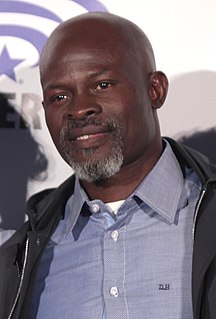A Quote by Warren Farrell
Although our grammar schools are teaching a whole generation computer language to adjust to the technological needs of a Stage II [post survival-focused] society, we have neglected to teach this generation relationship language and conflict resolution skills to address the social and psychological needs of a Stage II society. And when it is taught, in countries like Germany, although called social competence it focuses on workplace teamwork - still on survival, breadwinner oriented work goals.
Quote Topics
Address
Adjust
Although
Breadwinner
Competence
Computer
Computer Language
Conflict
Conflict Resolution
Countries
Focused
Generation
Germany
Goals
Grammar
Grammar School
Language
Like
Needs
Neglected
Oriented
Our
Post
Psychological
Psychological Needs
Relationship
Resolution
Schools
Skills
Social
Society
Stage
Still
Survival
Taught
Teach
Teaching
Teamwork
Technological
This Generation
Whole
Work
Workplace
Related Quotes
In its pursuit of justice for a segment of society, in disregard of the consequences for society as a whole, what is called 'social justice' might more accurately be called anti-social justice, since what consistently gets ignored or dismissed are precisely the costs to society. Such a conception of justice seeks to correct, not only biased or discriminatory acts by individuals or by social institutions, but unmerited disadvantages in general, from whatever source they may arise.
If we begin to say, "Well, maybe we can cope better with the Russians if we also transform ourselves into a managed society, if we, as somebody put it the other day, train our soldiers to be like the Turks, who have fought so bravely in Korea, if we are willing to change our whole way of life for the sake of so-called "survival," then I think we do exactly that which threatens our survival.
The thing we need to work on as a country is our educational system. To me, that is something that our generation needs to be focused on. To make sure that for our next generation, every child - no matter what background, no matter what ethnicity, no matter whether they're whatever gender - that they are all educated to have real equal opportunity. That's number one for me. But I have no question that if it's not our generation that will make sure that that happens that it will be our children's generation.
Many schools desperately need caring professionals like guidance counselors and social workers to ensure students' emotional, social and educational needs are met. But proposals to arm teachers are irresponsible and dangerous. The role of educators is to teach and nurture our children, not to be armed guards.
I loved teaching social studies. And I loved starting each year by teaching about John Locke and the social contract. That lesson helped me teach not just about our rules for the classroom, but how, in our democracy, we give up some individual rights to ensure we collectively have the right to live and prosper in a society.
The prevailing move in American society to a permanent war status does more than promote a set of unifying symbols that embrace a survival of the fittest ethic, promoting conformity over dissent, the strong over the weak, and fear over responsibility, it also gives rise to what David Graeber has called a "language of command" in which violence becomes the most important element of power and mediating force in shaping social relationships.
The problem that we have is some of the more vocal countries, which parade themselves as Islamic countries, are, in fact, brutal dictatorial regimes. We don't accept them as being Sharia at all, because, what they tend to do, is they tend to just implement several aspects of the penal code and one or two morsels of the social system, but the rest of the system, like providing the basic needs and the social aspects of society and an education system, is completely ousted.
This generation is different. They are not as interested in chasing money or material possessions. I believe that this generation is more interested in seeking social change and a more just society than any generation since those that brought about the civil rights movement and the struggles for human dignity of the 1960s.




































